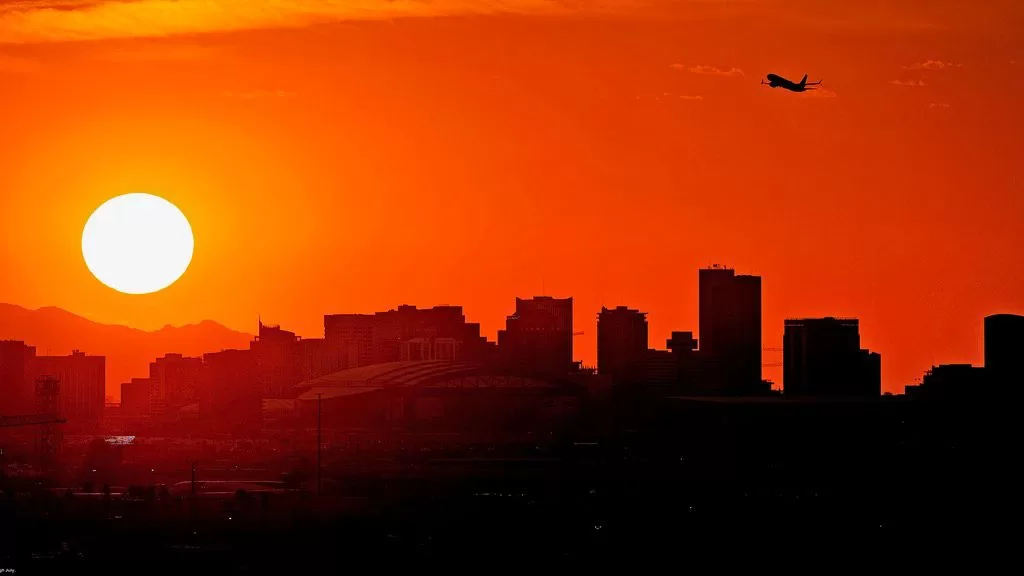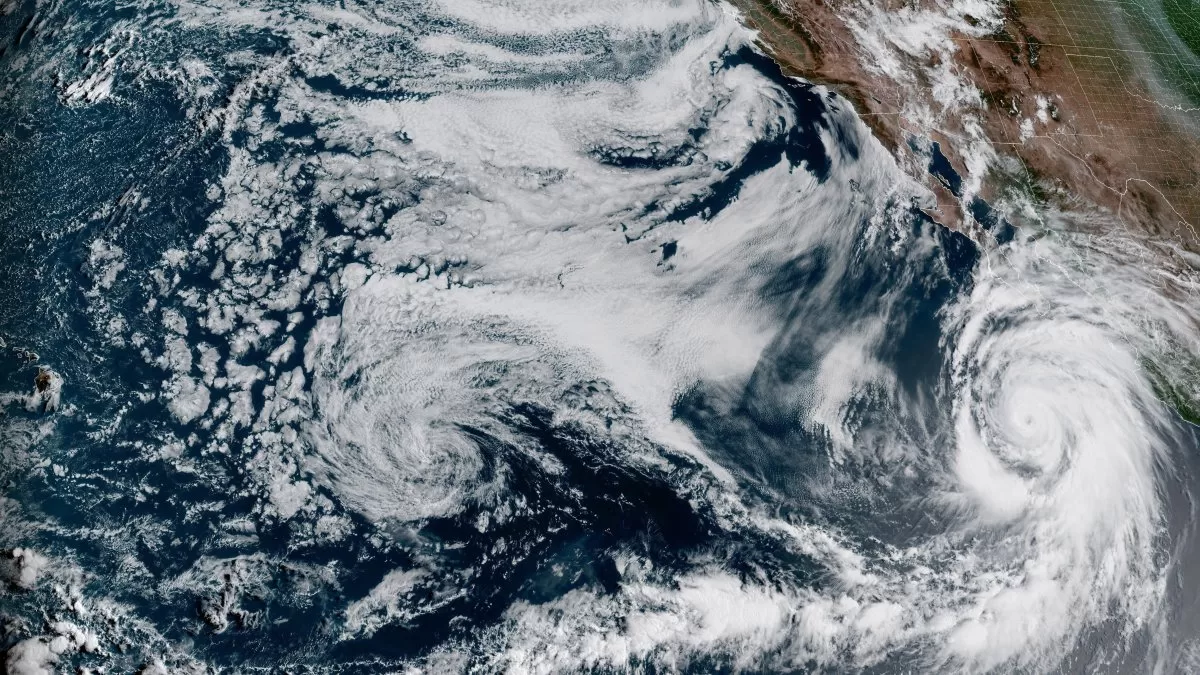The past 12 months were the hottest ever recorded on Earth, according to a new report from Climate Central, a nonprofit scientific research group.
The report reviewed by other experts says the burning of gasoline, coal, natural gas and other fossil fuels that release planet-warming gases such as carbon dioxide, and other human activities caused the unnatural warming from November 2022 to October 2023.
“October 2023 capped the hottest 12-month period in recorded history,” Climate Central wrote in a social media post.
PRESS RELEASE: October 2023 capped the hottest 12-month span in recorded history #ClimateShiftIndex
— Climate Central (@ClimateCentral) November 9, 2023
Over the course of the year, 7.3 billion people, or 90% of humanity, endured at least 10 days of high temperatures made at least three times more likely due to climate change.
“People know things are weird, but they don’t necessarily know why they’re weird. They don’t relate to the fact that we are still burning coal, oil and natural gas,” said Andrew Pershing, climate scientist at Climate Central.
“I think what really came to light from this year’s data was that no one is safe. “Everyone experienced unusual weather-induced heat at some point during the year,” Pershing said.
The average global temperature was 1.3 degrees Celsius (2.3 degrees Fahrenheit) higher than the pre-industrial climate, which scientists say is close to the limit that countries agreed not to exceed in the Paris Agreement: an increase of 1.5 C (2.7F). The impacts were evident: one in four human beings, or 1.9 billion people, suffered dangerous heat waves.
“90% of Earth’s inhabitants experienced heat fueled by carbon pollution during the planet’s record-breaking 12-month warmest streak,” Climate Central wrote in another social media post.
90% of people on Earth experienced heat boosted by carbon pollution during the planet’s record-hottest 12-month streak. #climatematters pic.twitter.com/6Inck0u090
— Climate Central (@ClimateCentral) November 9, 2023
At this point, said Jason Smerdon, a climate scientist at Columbia University, no one should be taken by surprise.
“It’s like being on an escalator and being surprised that you’re going up,” Smerdon said. “We know things are getting hotter, this has been predicted for decades.”
Here’s how some regions were affected by the extreme heat:
1. Extreme heat fueled destructive rainfall because a warmer atmosphere holds more water vapor, allowing storms to release more precipitation. Storm Daniel became Africa’s deadliest storm, with an estimated death toll ranging between 4,000 and 11,000, according to officials and aid agencies. Greece, Bulgaria and Turkey also suffered damage and deaths from Storm Daniel.
2. In India, 1.2 billion people, or 86% of the population, experienced at least 30 days of high temperatures, which climate change made at least three times more likely.
3. Drought in Brazil’s Amazon region caused rivers to dry up to historically low levels, depriving people of food and fresh water.
4. At least 383 people died in extreme weather events in the United States, 93 of them related to the Maui wildfire, the deadliest fire of the century in the United States.
5. One in 200 people in Canada evacuated their home because of wildfires, which burn longer and brighter after long periods of heat dry out the land. The Canadian fires sent smoke billowing across much of North America.
6. On average, Jamaica experienced high temperatures that were four times more likely due to climate change over the past 12 months, making it the country where climate change had the most powerful influence.
“We need to adapt, mitigate and be better prepared for residual damage because the impacts are very uneven from place to place,” said Kristie Ebi, a professor at the Center for Health and the Global Environment at the University of Washington, citing changes in precipitation, sea level rise, droughts and forest fires.
Last year’s heat, as intense as it was, has eased because the oceans have been absorbing most of the excess heat related to climate change, but they are reaching their limit, said Kim Cobb, a climate scientist at the University of Brown. “The oceans are truly our planet’s thermostat…they are tied to our economy, food sources and coastal infrastructure.”




